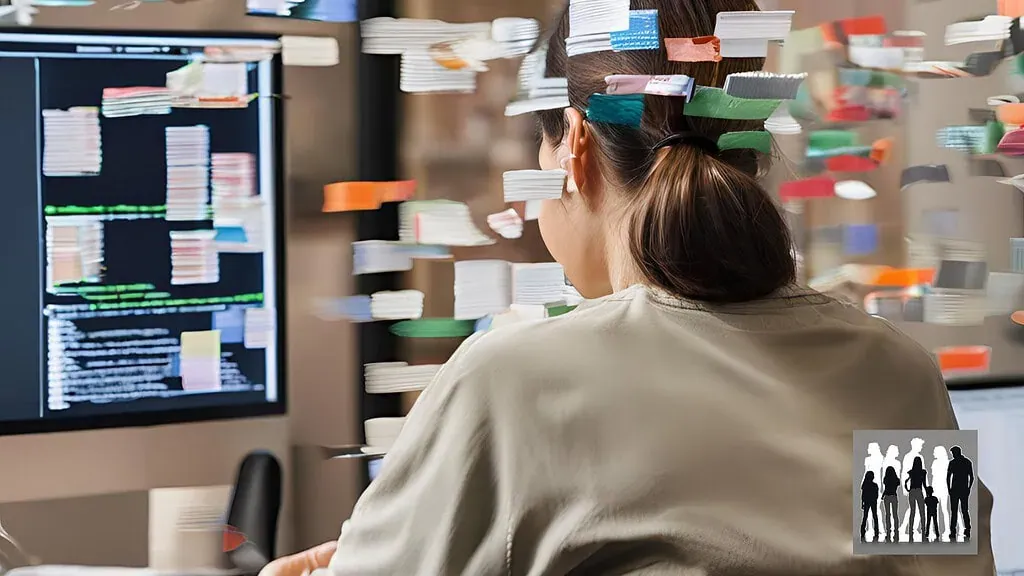Does ADHD really mean you have an attention deficit?
Well, not exactly! Many people with ADHD actually have too much attention, but struggle to focus it on one thing at a time. This can make it hard to finish tasks or stay still. So, let’s look at what ADHD really means!
In this story, we will explore how ADHD affects attention and behavior. We’ll also look at why the term “deficit” can be misleading. Prepare yourself to learn about the interesting place of ADHD!
Understanding ADHD and Attention Deficit
ADHD, or Attention Deficit Hyperactivity Disorder, isn’t just about lacking attention. It’s like having a TV with too many channels—sometimes, I can’t decide which show to watch! Medication helps me focus on one channel at a time, making life a bit easier.
Definition of ADHD
Attention-deficit/hyperactivity disorder, or ADHD, is like a wild rollercoaster ride in your brain. It’s marked by a pattern of inattention and/or hyperactivity-impulsivity that can mess with daily life.
Imagine trying to focus on a single TV show while ten others are blaring in the background. That’s how ADHD feels! It affects about 11 percent of school-age kids, and symptoms can stick around into adulthood. In fact, many adults remain undiagnosed because until fairly recently, ADHD was considered a developmental disorder.
- Inattention: Often forgets details or gets distracted easily.
- Hyperactivity: Can’t sit still, always on the move.
- Impulsivity: Acts without thinking, leading to hasty decisions.
But wait! Does ADHD really mean a lack of attention?
I think it’s more about having too much attention and struggling to focus it. It’s like having a spotlight that keeps shifting!
Medication can help direct that attention better, allowing us to focus on what truly matters. So, while ADHD sounds like a deficit, it’s really about managing our supercharged brains!
For more insights on symptoms, check out this CDC resource.

Cognitive and Behavioral Aspects of ADHD
ADHD isn’t just about a lack of attention; it’s like having a TV with too many channels. I struggle to focus on one show, flipping through options. Medication helps me tune in, sharpening my focus. It’s not a deficit; it’s about directing my attention effectively.
Executive Functioning Challenges
Ever feel like your brain is a TV with too many channels?
That’s how ADHD works! It’s not just a lack of attention; it’s a struggle to focus on one thing amidst the chaos.
Executive function is like the conductor of an orchestra, coordinating thoughts and actions. When it falters, tasks can feel overwhelming, like trying to juggle flaming torches!
- Impulse Control: Imagine a race car without brakes—ADHD can make it hard to stop and think before acting.
- Attention Span: Think of a squirrel on caffeine! Staying focused can be a wild ride.
- Working Memory: Like trying to remember a phone number while juggling—it’s tricky!
Medication isn’t about giving more attention; it’s about helping direct it better. It’s like tuning a radio to the right station.
“ADHD isn’t just about attention deficit; it’s about attention overload!”
With the right strategies, like mindfulness and therapy, we can learn to manage our attention and thrive. Who knew ADHD could be a superpower in disguise?
Impulsivity and Hyperactivity
ADHD isn’t just about a lack of attention; it’s like having a TV with a hundred channels but only one remote! Impulsivity can lead to acting without thinking, like jumping into a pool without checking the water before.
Ever tried to focus on school work while a video game is calling your name?
That’s hyperactivity in action! It’s like a puppy that can’t sit still, always ready to play.
- Attention span: It’s not about having less attention; it’s about where it goes!
- Impulse control: Imagine a rollercoaster ride—thrilling but sometimes scary!
Medication doesn’t magically create attention; it helps us steer our focus, like a GPS guiding us through a busy city.
“ADHD is a bit misleading; we don’t lack attention, we just have too much of it!”
So, when we think about ADHD, let’s remember it’s not just about being distracted; it’s about finding your way through a whirlwind of thoughts and feelings!
Impact on Social Skills
Remember how I said it can feel like your brain is a TV with too many channels?
That’s ADHD! It’s not a lack of attention; it’s a *surplus* of distractions!
Social skills can feel like a game of dodgeball. I’m dodging social cues while trying to catch friendships! Here’s how ADHD impacts those skills:
- Difficulty reading cues: Like trying to read a book in the dark, I often miss non-verbal signals.
- Impulsivity: Imagine a firecracker going off! I might blurt things out, leaving friends puzzled.
- Restlessness: Sitting still feels like a challenge; my mind races while others chat.
So, how do I steer this social maze?
With a mix of patience and practice! It’s like learning to ride a bike—wobbly at first, but I get better with time.
Medication can help me focus, but it’s the coping strategies that really make a difference. Think of it as having a map in a tricky maze!
In the end, ADHD isn’t just about attention; it’s about learning to steer my focus like a captain finding a way to steer a ship through stormy seas.
Summing up
ADHD doesn’t mean I lack attention. It means I have too much of it! I bounce between tasks, struggling to focus. With the right help, I can learn to direct my attention better. So, let’s rethink what “attention deficit” really means for those of us with ADHD!
